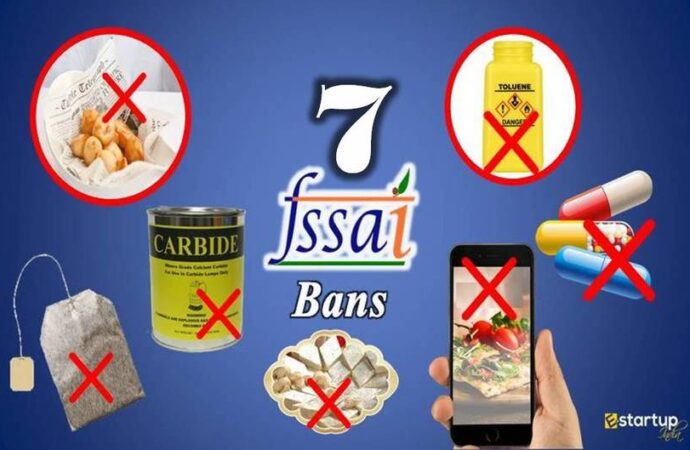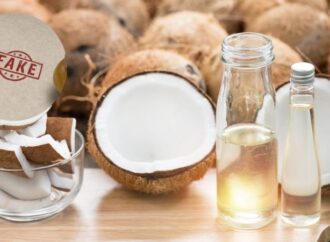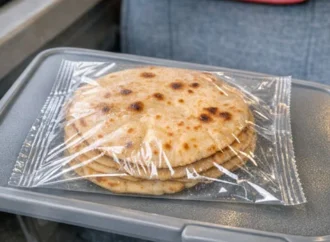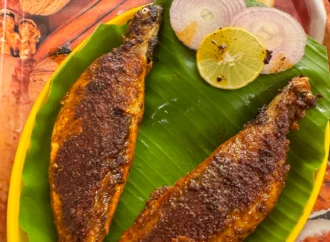India’s food market is one of the largest and most diverse in the world, and with an ever-growing consumer base, there is an increasing demand for safe, high-quality food products. The Food Safety and Standards Authority of India (FSSAI) plays a critical role in safeguarding public health by regulating food safety. It ensures that food items comply with stringent health standards. As the food industry evolves, the FSSAI takes proactive steps to enforce bans on harmful additives and unsafe practices that can pose risks to consumers. These actions protect the public from contaminants and ensure that food products meet high-quality safety standards.
Plastic and Newspaper in Food Packaging

FSSAI has taken a significant step by banning the use of reused plastic and newspaper packaging for food items. This ban reduces the environmental and health risks linked to plastic packaging. It addresses concerns about hygiene and contamination, ensuring that food products are safely packaged and transported.
Stapler Pins in Tea Bags
The FSSAI has banned the use of stapler pins in tea bags due to serious health risks. Loose pins can cause choking hazards or injuries, and metallic pins often contain carcinogenic substances. To protect consumers, FSSAI banned stapled tea bags starting from January 1, 2018.
Carbide for Artificial Ripening of Fruits

To protect consumers from health risks associated with artificially ripened fruits, FSSAI has banned the use of chemicals like calcium carbide and acetylene gas. These substances can be toxic and carcinogenic. The FSSAI allows the use of ethylene gas as a safer alternative for ripening fruits.
Non-Veg Silver Leaf in Indian Desserts
FSSAI has banned the use of non-vegetarian silver leaf in Indian sweets like pethas, barfis, and kaju katlis because it sometimes contains harmful metals such as nickel, lead, and cadmium, which can be toxic. This ban ensures that sweets remain safe and free from harmful substances.
Toluene Printing in Food Packages
FSSAI has banned toluene, a toxic chemical used in printing food packaging because it can leach into food products and cause liver and kidney damage. This ban protects consumers from the harmful effects of toluene contamination.
E-Commerce Sales by Unregistered Food Operators
FSSAI has prohibited unregistered food business operators (FBOs) from listing food products for sale on e-commerce platforms. This regulation ensures that only FSSAI-compliant food items are sold online, protecting consumers from unhygienic and unsafe food options.
Chinese Milk and Milk Products
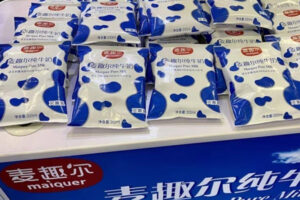
FSSAI banned Chinese milk and milk products in 2008 due to melamine contamination. Melamine, a chemical used to artificially increase protein content, poses serious health risks, especially to children. This ban was essential for preventing kidney damage caused by melamine-contaminated milk.
Genetically Modified Foods (GM Foods)
India strictly regulates genetically modified (GM) food products due to concerns about environmental impact, biodiversity loss, and potential long-term health effects. While some GM crops like Bt cotton are allowed, the approval process for GM food crops remains stringent.
Potassium Bromate
FSSAI banned potassium bromate, a carcinogenic additive used in bread and bakery products, in 2016. Research indicated that potassium bromate increases the risk of cancer, especially thyroid cancer. The ban protects consumers from the health risks associated with its consumption.
Rhodamine B
Rhodamine B, a synthetic dye primarily used in textiles, has been banned in food products due to its carcinogenic and toxic effects. It can cause liver damage, and skin irritation, and increase cancer risk. FSSAI has implemented this ban to protect consumer health.
Chinese Garlic
In 2019, FSSAI banned Chinese garlic due to excessive pesticide contamination. The overuse of pesticides in garlic farming poses serious health risks, including cancer. The ban protects consumers from the harmful effects of tainted garlic.
Foie Gras
FSSAI banned the production and sale of Foie Gras in 2014 due to concerns about inhumane production practices. The force-feeding of ducks and geese during its production raised ethical concerns, leading to the ban in support of animal welfare.
Brominated Vegetable Oil (BVO)

FSSAI banned the use of Brominated Vegetable Oil (BVO) in citrus-flavored drinks due to its health risks. BVO has been linked to liver and kidney damage. The ban ensures that consumers are protected from the harmful effects of this chemical in food products.
Sassafras Oil
Sassafras oil contains high levels of erucic acid, which can cause cardiovascular problems. To protect consumer health, FSSAI has banned its use in food products, ensuring that foods remain safe and free from harmful substances.
Rabbit Meat
Due to religious sensitivities and concerns about animal welfare, FSSAI has banned the consumption of rabbit meat. This decision reflects India’s commitment to promoting humane food production practices while respecting cultural beliefs.
Conclusion
In conclusion, the FSSAI is instrumental in maintaining food safety in India by regulating harmful additives, chemicals, and unsafe practices. While the food industry faces constant challenges, including the rise of unsafe food products and practices, the FSSAI’s proactive regulations provide a vital safeguard. By enforcing bans on hazardous substances, the FSSAI ensures that food products remain safe, healthy, and free from contamination. To address emerging risks, the authority continuously adapts its policies, offering a reliable solution to the growing concerns surrounding food safety.
 Food Manifest
Food Manifest 